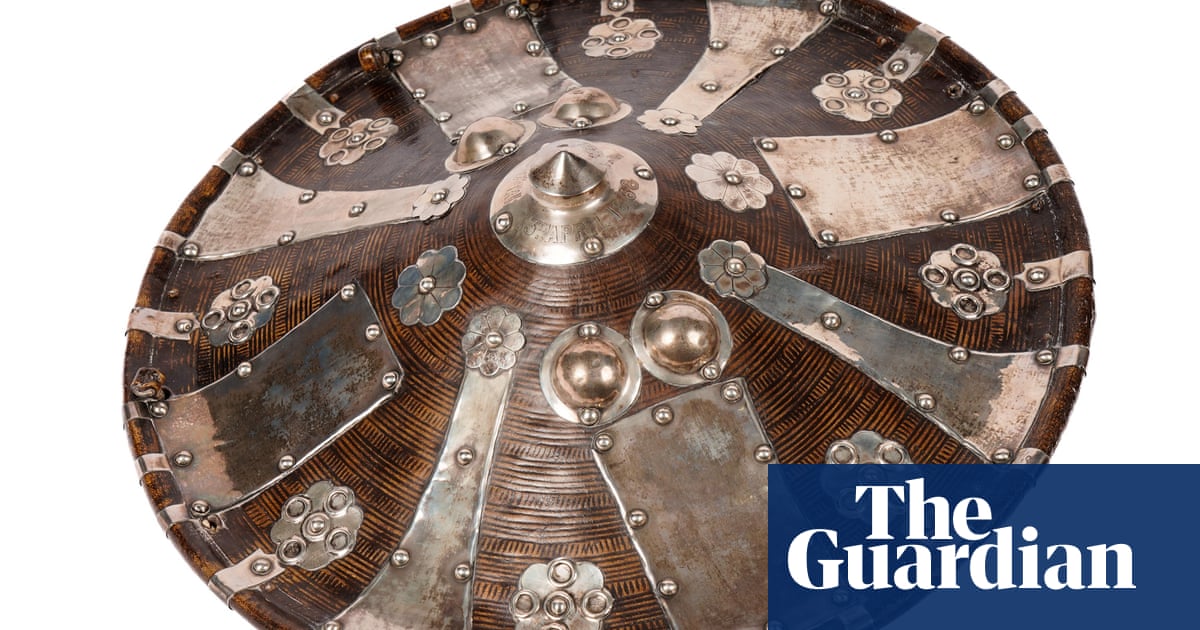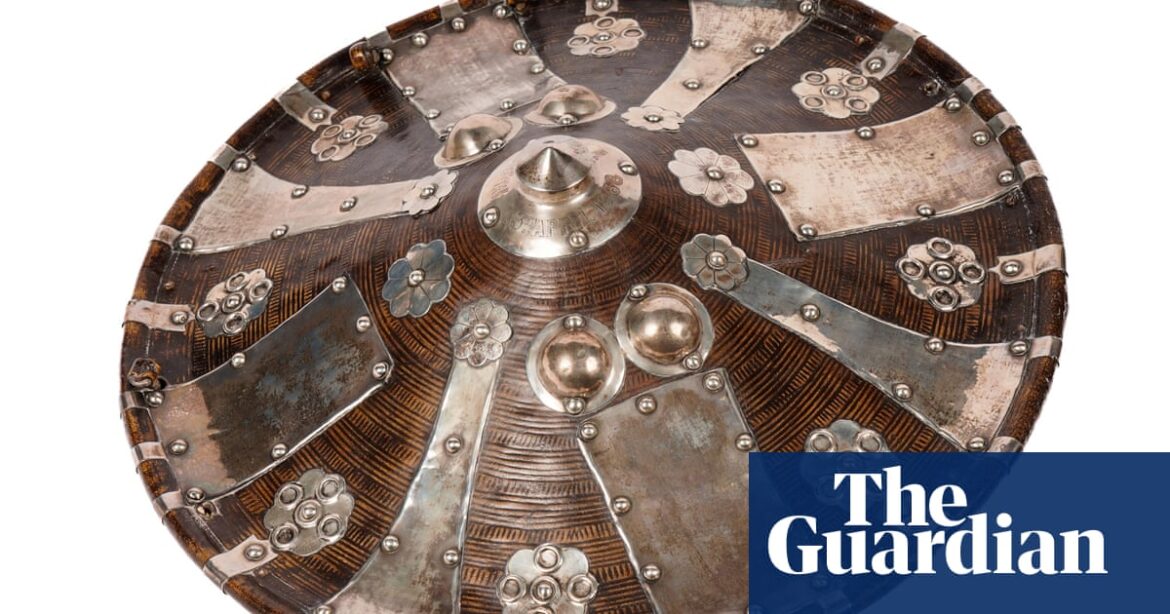
The current government of Ethiopia has denounced the auction of a stolen shield from its colonial past as morally unacceptable. Efforts are being made to halt the sale and prevent it from becoming part of someone’s personal collection.
The Ethiopian National Heritage national restitution committee reached out to Anderson & Garland, an auction house located in Newcastle upon Tyne, regarding a 19th-century Abyssinian shield. They argued that the shield should be taken out of the upcoming auction scheduled for this Thursday.
The ministry of tourism in Ethiopia has requested that the auction house begin the process of returning an item that was taken during the Battle of Maqdala in 1868. The item is to be returned to the east African country, specifically the village now known as Amba Mariam.
Lord Napier’s forces emerged victorious in the battle against Emperor Tewodros II, leading to the plunder of numerous treasures. These artifacts were later taken to the United Kingdom, where some were acquired by private collectors while others were housed in notable institutions such as the British Museum and the Victoria and Albert Museum.
The shield, which the auction house describes as having a “circular dome shield made from hide and decorated in blind, with white metal strapwork and floral appliquets”, includes a central boss with an engraved description that reads: “Magdala 13th April 1868.”
The letter from the committee states that the acquisition of the artefact was done inappropriately during a punitive expedition to Ethiopia, where the items were stolen. Therefore, the committee finds it inappropriate for you to sell this item in your auction.
A representative from Anderson & Garland acknowledged they received the letter, however, the company did not offer any additional remarks.
For many years, the Ethiopian government has been requesting the return of objects taken in 1868. In 2007, it made a plea to British institutions to give back hundreds of Maqdala treasures, such as manuscripts, regalia, and jewelry, but was unsuccessful.
In 2018, the Victoria and Albert Museum stated that they were considering returning certain artefacts from Maqdala to Ethiopia for a long-term loan. Additionally, a petition supported by Stephen Fry and Lemn Sissay called for the British Museum to also return their Maqdala artefacts.
In 2021, an auction in Bridport, Dorset was stopped after the Ethiopian embassy appealed to the auction house and seller to prevent further dispossession. The items in question were a Coptic bible and a collection of horn beakers bound in leather.
after newsletter promotion
The embassy of Ethiopia reported that over 20 individuals who own private collections have returned items from Maqdala following requests for restitution.
In recent years, there has been increasing pressure on European institutions to return items acquired during the colonial era. Some British institutions have returned several Benin bronzes, which were taken in 1897 by British forces from present-day Nigeria, after facing years of advocacy.
Westminster Abbey recently announced their willingness to return a holy tablet to the Ethiopian Orthodox church. This decision puts the British Museum under scrutiny, as they possess 11 tabots that are not publicly displayed and can only be accessed by Ethiopian Orthodox priests.
Source: theguardian.com



